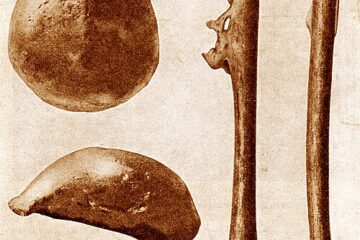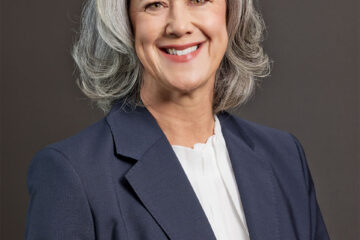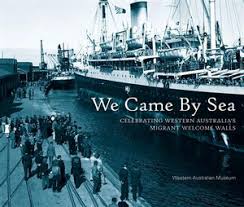The World Solar Challenge is a biannual race in outback Australia that aims to promote the development of solar-powered vehicles. The Challenge was first held in 1987 and draws teams from all over the world, including the Netherlands.
About the World Solar Challenge
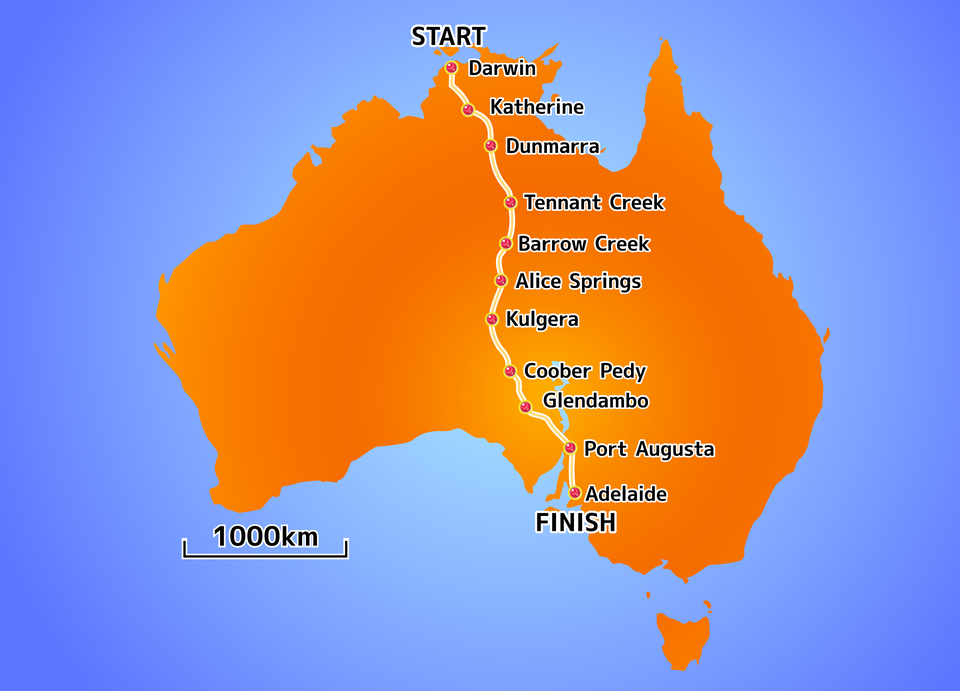
Participants in the World Solar Challenge (teams of students from universities and technical institutions) race over 3,000km from Darwin to Adelaide in solar-powered vehicles that they have designed, developed and built themselves. Teams typically consist of drivers, passengers and escort team members. Efficiently managing power resources and consumption is key to success in the Challenge. A vehicle’s optimal driving speed depends on the weather forecast and battery levels, and escort team members remotely monitor the solar cars’ condition to determine the best strategy. Charging batteries during periods of daylight when the car is stationary is also crucial, so solar panels are usually positioned perpendicular to the sun to capture as much energy as possible.
There are three categories in the Challenge:
- Challenger Class: The original class. Cars in this category have one driver and at least three wheels, meaning they typically have a sleek and narrow design. These vehicles can use at most 6m2 of solar panels.
- Cruiser Class: Introduced in 2013, the Cruiser class encourages teams to design innovative, sustainable solar-powered cars showcasing real-world, eco-friendly solutions. Vehicles in this class have one driver and one passenger, and are allowed to recharge overnight.
- Explorer Class: Originally called the Adventure Class, this category enables teams to explore new technologies and ideas in solar-powered vehicle design.
The Netherlands at the World Solar Challenge
The first Dutch team participated in the Challenge in 2001. Since then, more Dutch universities are sending teams to Australia to compete in the World Solar Challenge, including the following teams.
Brunel Solar Team (Delft)
The first Dutch team to participate in the Challenge was the Alpha Centauri Team (now Brunel Solar Team) from Delft University of Technology, under the leadership of Dutch astronaut and aerospace engineer Wubbo Ockels. The team’s solar-powered vehicle Nuna 1 won the 2001 World Solar Challenge in the Challenger class, with an average speed of 91.81km/h across 32 hours 39 minutes of race time.
Since Nuna 1, the team has won the World Solar Challenge’s Challenger class eight times: in 2001, 2003, 2005, 2007, 2013, 2015, 2017 and most recently in 2025 when it crossed the finish line in just under 35 hours. The team’s track record as a winner means it is a heavyweight in the Challenger class, designing cars to complete the race as efficiently as possible.
Solar Team Eindhoven (Eindhoven)
This team comprises students from Eindhoven University of Technology and is known for their series of solar vehicles called Stella. The first car in this series (the original Stella) is significant because it is considered the world’s first solar-powered family vehicle. To date, Solar Team Eindhoven has raced their Stella cars in the World Solar Challenge’s Cruiser class, demonstrating that solar powered vehicles can in fact have practical, everyday applications.
The original Stella took out first place in 2013’s World Solar Challenge’s Cruiser class. Subsequent cars in the series – Stella Lux, Stella Vie and Stella Era – won this category in 2015, 2017 and 2019. Interestingly, Stella Vie is the world’s first solar-powered car to be road registered – a fact that contributed to its final ranking with 100 points in the 2017 Challenge.
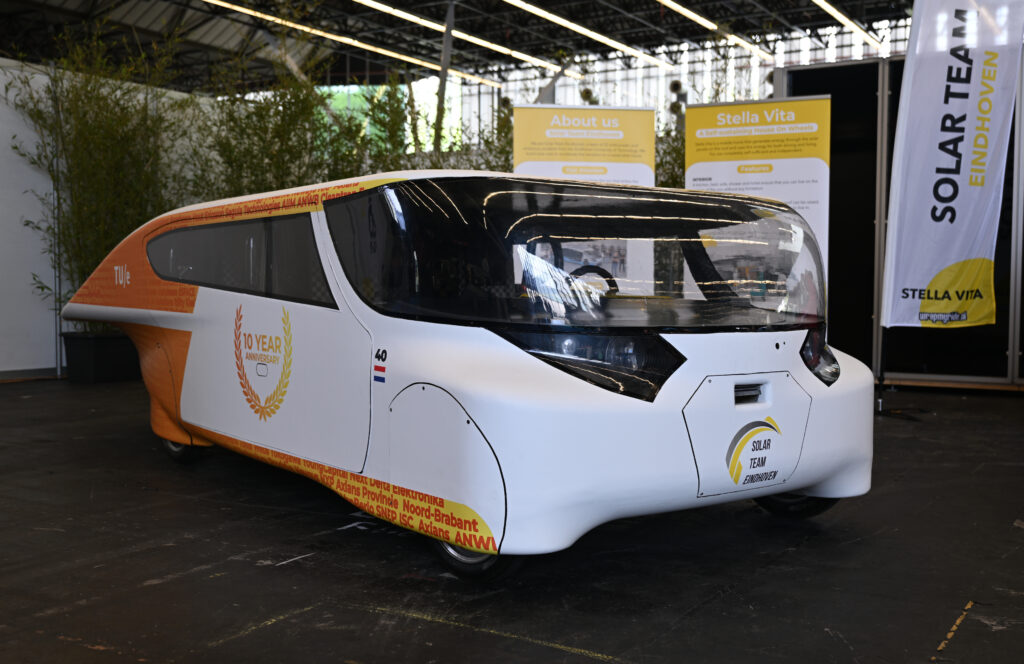
Solar Team Twente (Twente)
Solar Team Twente consists of students at Twente University. The team first participated in the 2005 iteration of the World Solar Challenge, where their vehicle SolUTra placed ninth. Since then, the team has gone through several vehicle designs and has generally finished in the top ten. In the 2025 Challenge, the team’s car RED Discover came second after a five-day race.
Top Dutch Solar Racing (Groningen)
Unlike the three Dutch teams already mentioned in this article, Top Dutch Solar Racing is not affiliated with a single university. Rather, its team members come from different levels of education including MBO, WO and HBO levels. The team is based in Groningen and first participated in the World Solar Challenge in 2019 with its solar car Green Lightning.
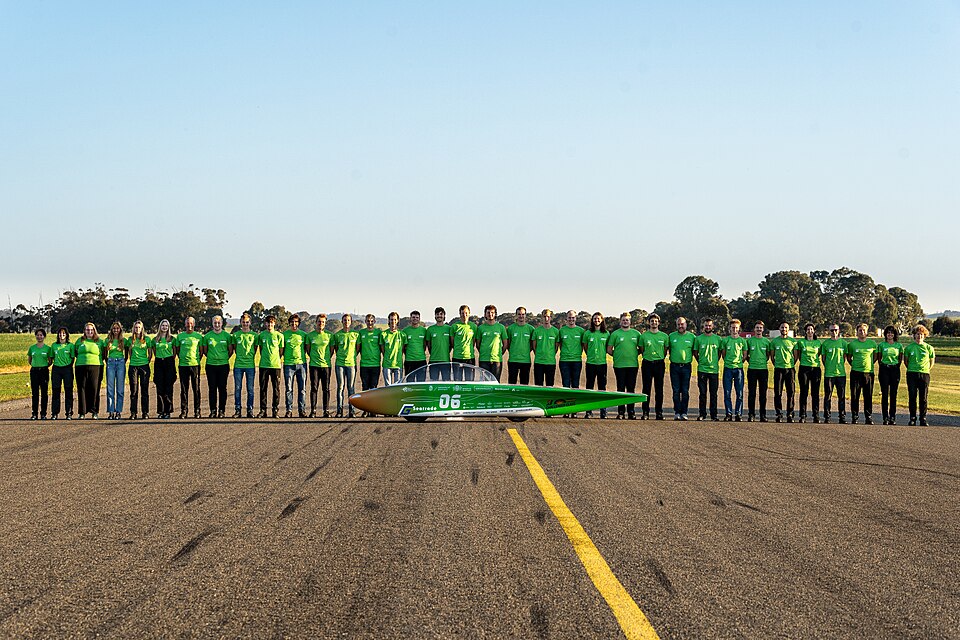
Dutch participation in the World Solar Challenge in Australia is a symbol of the ongoing ties between the two countries. It highlights both countries’ commitment to sustainability and promotes knowledge exchange in solar innovation and transportation.
Select sources and further reading:
- World Solar Challenge official website
- Brunel Solar Team official website
- Solar Team Eindhoven official website
- Solar Team Twente official website
- Top Dutch Solar Racing official website
- Nuna Solar Car, TU Delft
